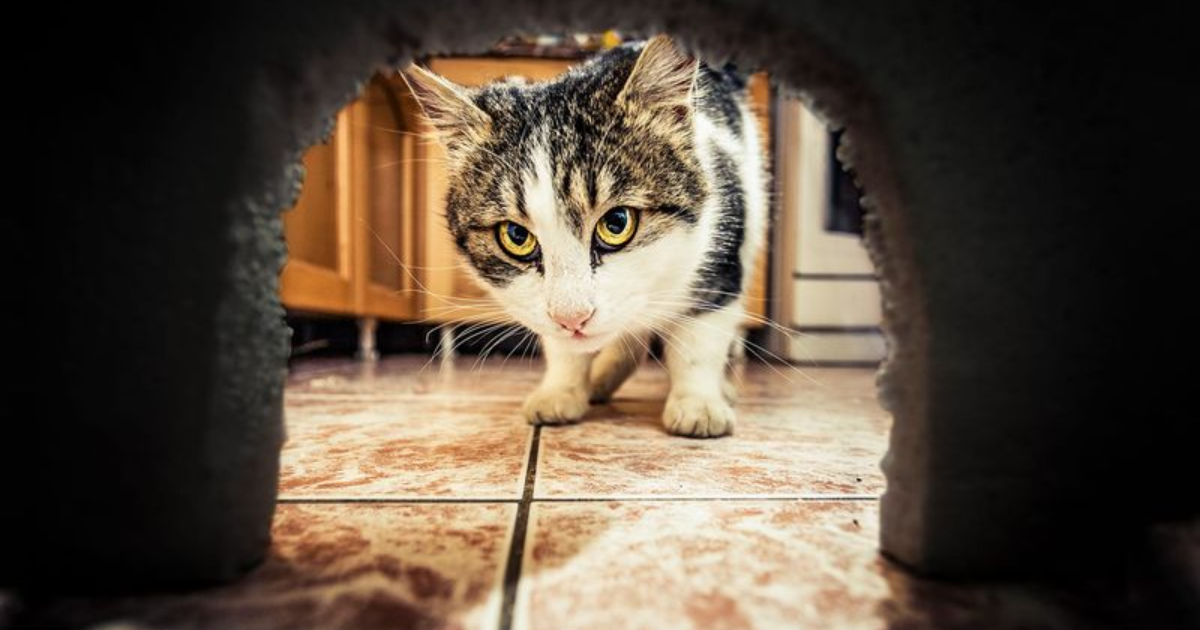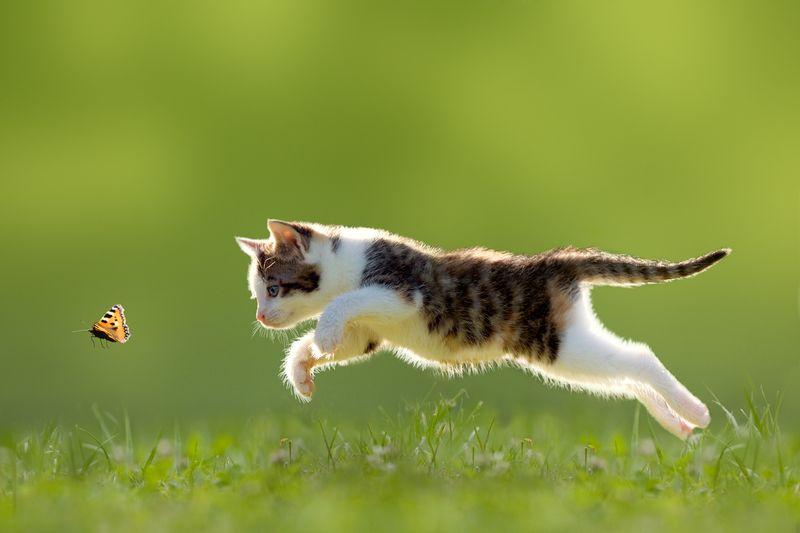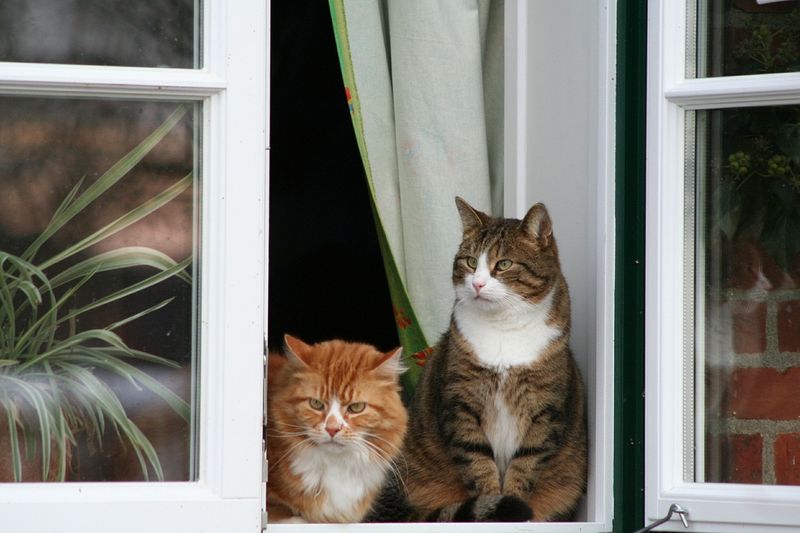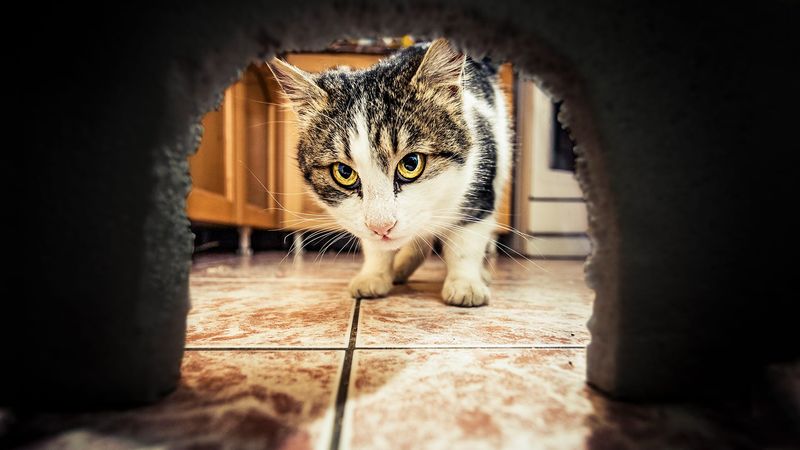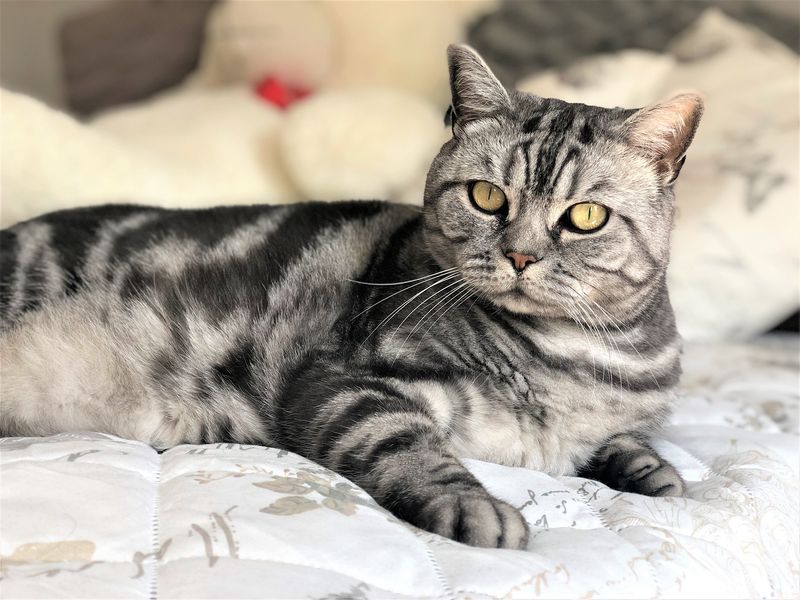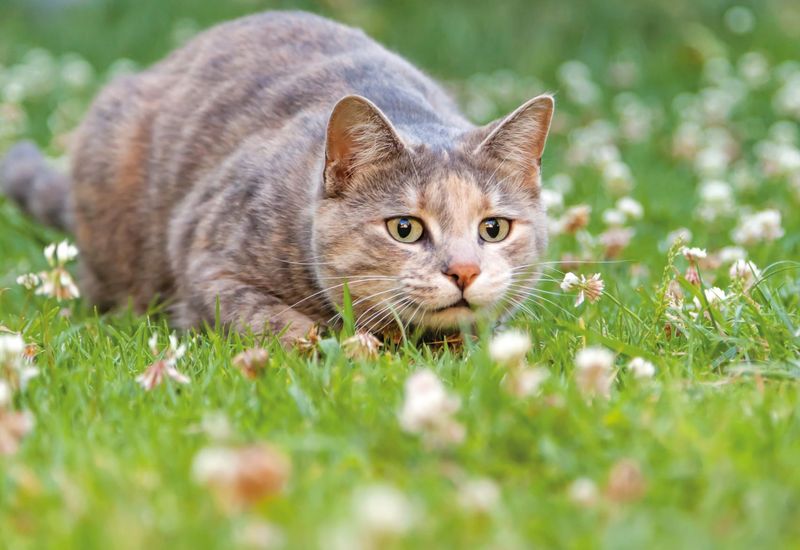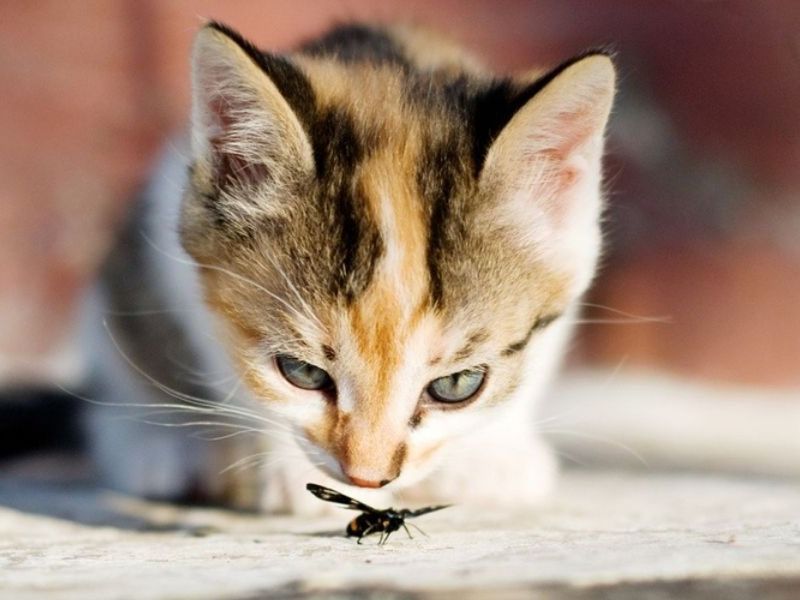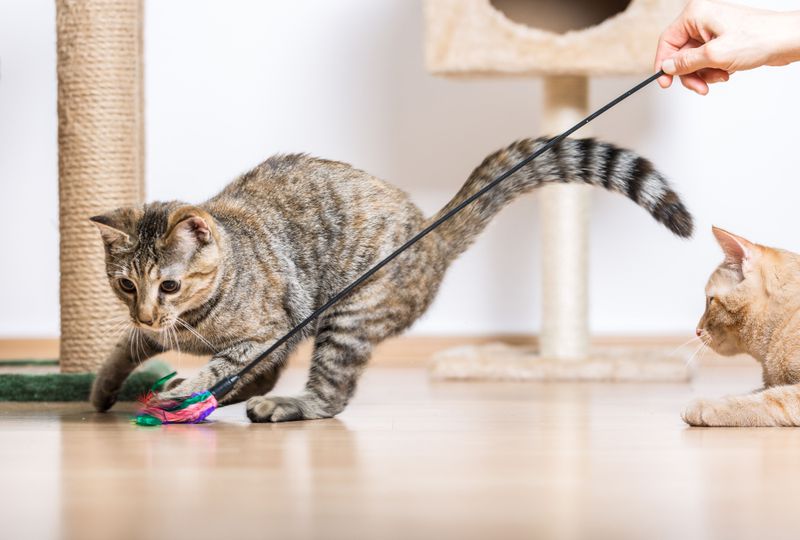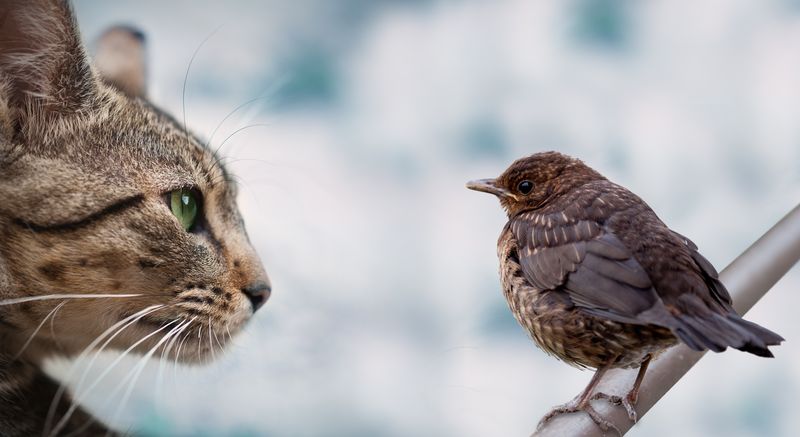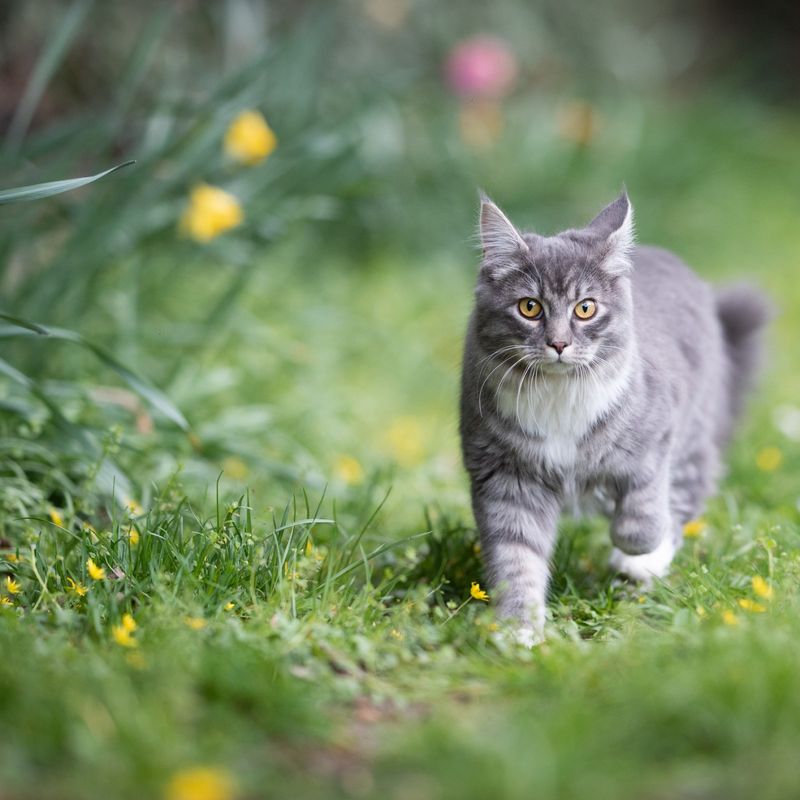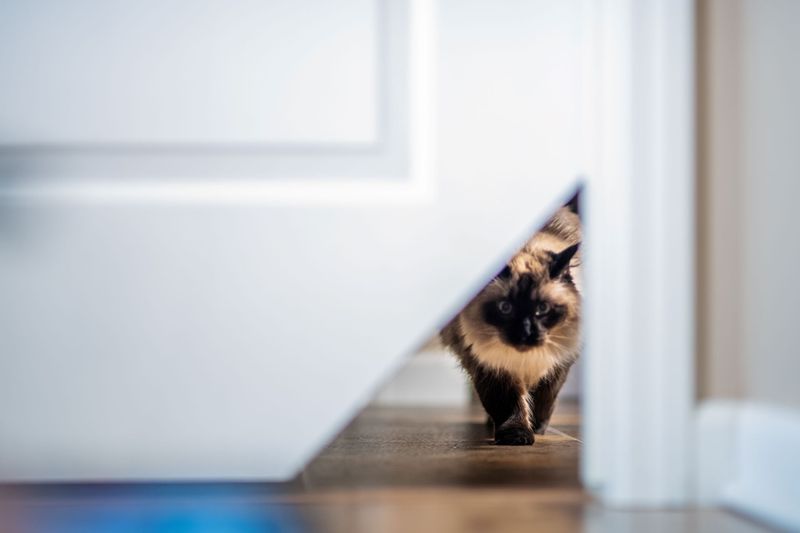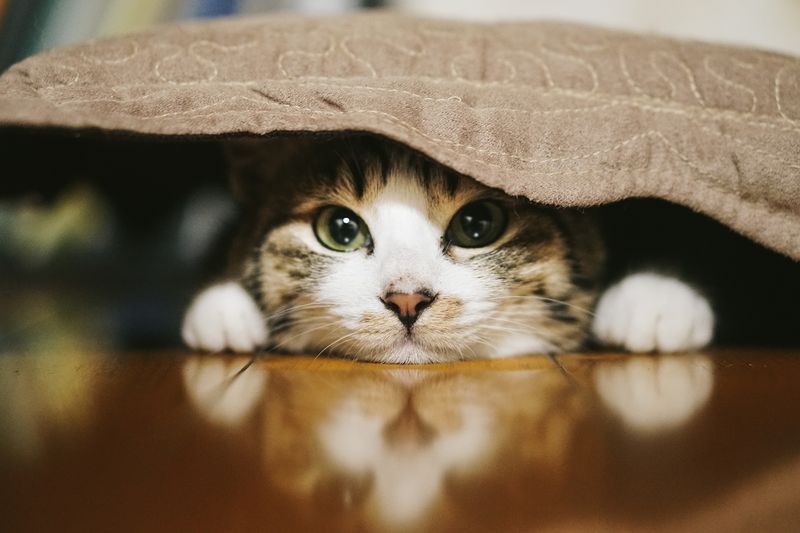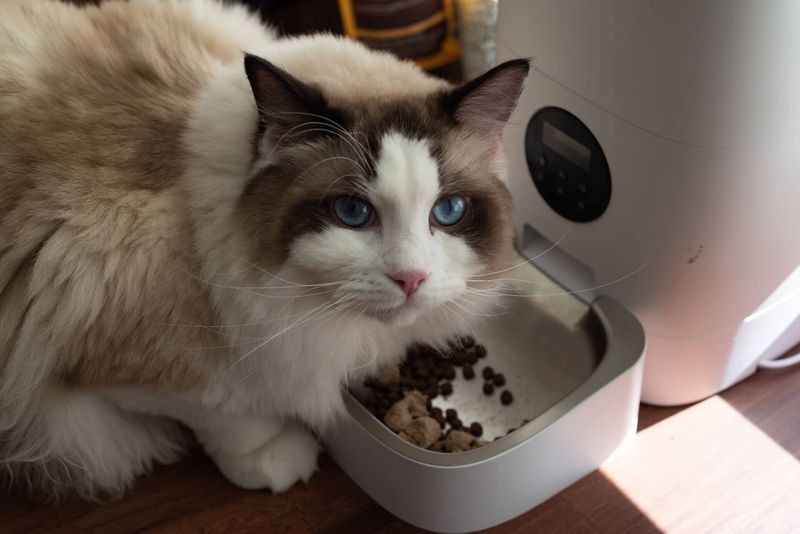📖 Table of Content:
- 1. Natural Hunters
- 2. Scaring Off Intruders
- 3. Reducing Rodent Population
- 4. Deterrent through Odor
- 5. Alertness to Unseen Threats
- 6. Minimizing Insect Infestations
- 7. Engaging Play Drives Away Pests
- 8. Barrier Against Outdoor Pests
- 9. Paw Patrol in the Garden
- 10. Guardians of Entry Points
- 11. Natural Pest Control Companion
- 12. Preventing Hidden Infestations
- 13. Eliminating Food Sources for Pests
Cats have long been cherished companions, celebrated for their mysterious allure, playful antics, and fiercely independent spirits.
But beyond their undeniable charm and companionship, cats also play a practical role in our homes that often goes unrecognized—they’re natural-born hunters and vigilant protectors.
With instincts honed over thousands of years, cats act as silent yet highly effective guardians against unwanted pests, using their keen senses and hunting prowess to deter and eliminate intruders.
From rodents to insects, we’ll dive into twelve fascinating ways cats work behind the scenes to safeguard your space from unwanted guests, proving once again why they truly earn their place as beloved members of the family.
1. Natural Hunters
Cats, with their innate hunting skills, have been part of human households for centuries. Their stealthy nature allows them to silently stalk and pounce on unsuspecting pests, such as mice and insects. This natural ability not only keeps your home free of vermin but also provides your cat with mental stimulation and exercise.
Watching a cat in action is like witnessing a miniature lion in the wild, its every movement calculated and precise. This instinctual behavior is beneficial for both the cat and the homeowner, as it deters rodents and other small creatures from invading your space.
Furthermore, having a cat can reduce the need for chemical pest control methods, promoting a more eco-friendly home environment. This symbiotic relationship has made cats a beloved and practical choice for pest management.
2. Scaring Off Intruders
As territorial animals, cats have an innate ability to discourage pests from entering a home. Their heightened senses allow them to pick up on subtle movements and noises that humans can’t, making them effective at scaring off intruders.
When a cat senses a potential threat, it will often position itself strategically, such as on a windowsill, to monitor the situation. This behavior is not only instinctual but also a protective measure to keep its territory secure.
The mere sight of a vigilant cat can be enough to scare away birds or rodents, preventing them from settling in and causing damage. By marking their territory, cats naturally discourage pests from making themselves at home, ensuring a safer and cleaner living space for their owners.
3. Reducing Rodent Population
Thanks to their heightened senses of smell and hearing, cats are great at warding off rodents. These skills allow them to track and capture mice and rats, preventing any unwanted infestations in your home.
The presence of a cat can significantly reduce a rodent population, as they are natural predators of these small creatures. This reduction not only prevents the spread of diseases that rodents may carry but also minimizes damage to property and food supplies.
Additionally, the playful nature of cats means they enjoy engaging with toys that mimic real prey, such as toy mice. This play not only keeps them entertained but also sharpens their hunting skills, ensuring they remain effective in keeping your home rodent-free.
4. Deterrent through Odor
The unique scent of cats acts as a natural repellent, effectively keeping insects and rodents away from your home.
The scent glands located in a cat’s face and paws release pheromones, which mark their territory and signal to pests that a predator is nearby. This marking behavior is a subtle yet powerful way to maintain a pest-free environment.
Homeowners can enhance this effect by keeping their cat’s living area clean and free from other odors that might attract pests. The combination of a cat’s natural scent and a tidy home can create an unwelcoming atmosphere for unwanted guests, ensuring your dwelling remains a comfortable and pest-free sanctuary.
5. Alertness to Unseen Threats
Cats are known for their extraordinary senses, particularly their acute hearing and vision. These heightened senses make them highly attuned to threats that may be invisible to the human eye.
A cat’s ability to detect the slightest rustle or movement means they can identify pests hiding in obscure places, such as walls or attics. This vigilance is a valuable asset in maintaining a pest-free home, as early detection can prevent an infestation from taking root.
By observing your cat’s behavior, such as sudden attentiveness to a particular area, you may uncover hidden pest problems. This ability to sense and respond to unseen threats makes cats an indispensable part of household pest control strategies.
6. Minimizing Insect Infestations
Insects are common household nuisances, and cats can play a crucial role in managing their populations. Their curiosity often leads them to investigate and eliminate insects like ants, spiders, and flies.
Cats’ playful interaction with these pests can prevent them from multiplying and becoming a serious problem. This natural form of pest control is not only effective but also safe, reducing the reliance on harmful chemicals.
Encouraging your cat’s playful nature by providing stimulating environments can enhance their ability to control insect populations. By allowing your cat to engage with its natural instincts, you contribute to a healthier home ecosystem, free from the disturbances and health risks posed by insect infestations.
7. Engaging Play Drives Away Pests
By indulging in playful behaviors that mimic hunting, cats stay active and keep their skills sharp. This not only provides them with fun but also sends a message to pests to stay away.
Providing toys that replicate the movements of prey, such as feathers or strings, encourages this natural behavior. As cats chase and pounce, they inadvertently create an environment that is inhospitable to pests.
Regularly engaging your cat in play can maintain their fitness and mental acuity, ensuring they remain effective in their role as pest controllers. This combination of entertainment and practicality makes playtime an essential aspect of a cat’s ability to protect your home.
8. Barrier Against Outdoor Pests
Spending time outdoors allows cats to act as a natural barrier to pests. Their territorial patrolling keeps wildlife, including birds, squirrels, and insects, from entering your home.
This territorial behavior is particularly useful in gardens and yards, where pests can cause significant damage. Cats’ natural curiosity drives them to explore and claim these spaces, making them less attractive to potential invaders.
Providing outdoor spaces for your cat to roam can enhance this protective effect. By allowing your feline friend to patrol these areas, you not only satisfy their instinctual needs but also fortify your home’s defenses against unwanted pests.
9. Paw Patrol in the Garden
The presence of cats in the garden can help protect your plants by deterring pests like moles, voles, and insects from causing harm.
As they patrol the garden, cats naturally scare off these pests, reducing the need for chemical interventions. A cat’s curious nature ensures they thoroughly explore their surroundings, maintaining a watchful eye for any signs of disturbance.
Encouraging your cat to spend time in the garden can promote a balanced ecosystem. Their patrols help keep your vegetables and flowers safe from harm, allowing your plants to thrive without the threat of pest damage. This natural partnership highlights the multifaceted role of cats as guardians of both home and garden.
10. Guardians of Entry Points
Cats often position themselves near entry points, such as doors and windows, where pests are likely to enter. Their vigilant nature ensures any attempted intrusion is swiftly addressed.
By observing these common entry points, cats provide an additional layer of security against pests. Their keen senses alert them to even the slightest movement, making them effective guardians of your home’s perimeters.
Encouraging this natural behavior can be as simple as placing a comfortable bed or perch near these spots. By doing so, you enable your cat to comfortably monitor these areas, enhancing their ability to deter pests and protect your home from unwelcome intruders.
11. Natural Pest Control Companion
Celebrated for centuries as natural pest control companions, cats continue to play a vital role in managing pests today. Their instincts, combined with the comfort of their companionship, make them an appealing and effective choice for pest control.
They offer a chemical-free approach to pest control, reducing the need for potentially harmful products in your home. This eco-friendly method not only protects your living space but also supports a healthier environment.
By understanding and nurturing these natural instincts, cat owners can foster a harmonious relationship with their pets that benefits both parties. This partnership, grounded in mutual respect and purpose, highlights the unique bond between humans and their feline friends as protectors of the home.
12. Preventing Hidden Infestations
Cats’ ability to detect pests is unparalleled, and their curiosity often leads them to discover hidden infestations. Their acute senses allow them to identify the presence of pests long before humans do, providing an early warning system against potential problems.
This proactive behavior can prevent infestations from growing out of control. By noticing a cat’s persistent interest in a particular area, homeowners can investigate further and address any issues before they escalate.
Encouraging your cat’s exploratory nature can aid in maintaining a pest-free environment. This natural vigilance, paired with human intervention, creates a comprehensive approach to household pest control, ensuring a safe and comfortable living space for all inhabitants.
13. Eliminating Food Sources for Pests
With their keen senses and natural curiosity, cats excel at roaming around the house, alert to any crumbs or food remnants. Imagine your furry companion, whiskers twitching, as it investigates every corner of the kitchen. By naturally cleaning up any spillages or food bits, they help reduce potential food sources for pests.
This behavior not only provides an entertaining spectacle but also contributes significantly to pest prevention.
As cats patrol their territory, their presence discourages pests like rodents and insects, ensuring your home remains a welcoming place only for invited guests. Their instinctive actions offer both protection and companionship.
